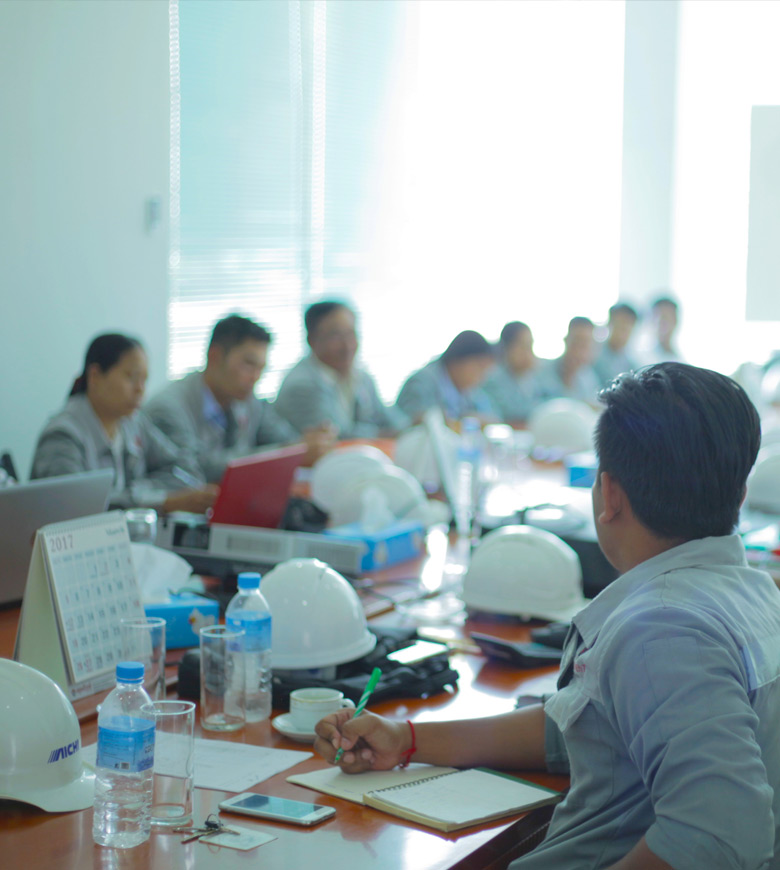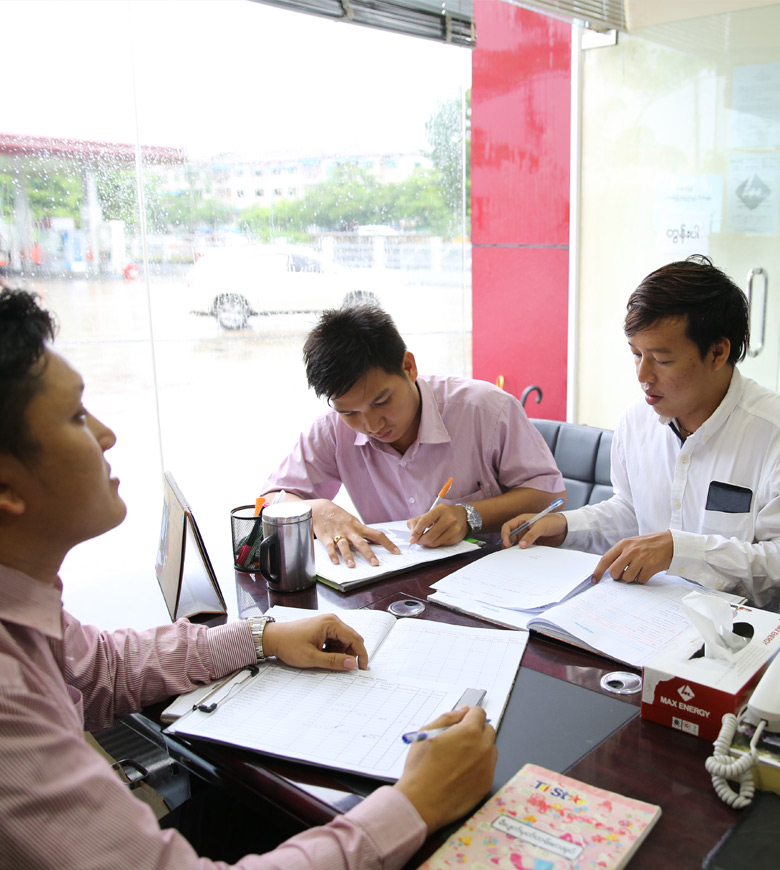
The group’s principal decision-making body is the board. It has responsibility for setting the group’s strategic direction and for ensuring the group manages risk effectively. The board is accountable to shareholders for the group’s financial and operational performance. There is a clear division of responsibilities between the running of the board and the executive responsibility for the running of the business.
The Board’s Responsibility
Accountability
- Protection of shareholder rights
- Adequate transparency and disclosure – financial and non-financial information
- Time and Accurate Information
- Review and approve the annual financial statements to provide shareholders with a balanced and clear assessment
Policy Formulation
- Creating vision and values
- Developing corporate climate and culture
- Monitoring the external environment
- Approving policy framework
Oversight and Control
- Internal control and risk management
- Financial management and reporting
- Internal/External audit
- Compliance
- Oversight of management performance
Strategy and Stewardship
- Strategic thinking by setting Max Myanmar’s direction and risk appetite
- CEO/Executive selection and evaluation
- Succession planning
Diversity of the Board
Appointments to the Board

Criteria for selecting new members of the Board
- Board of Directors should have appropriate experience, integrity and personal qualities; adhere to the best industry’s professional practices.
- They must act in good faith in what they believe to be the best interests of the company. Generally, the interests of the company are to be equated with the interests of its members as a whole. As between different groups of shareholders, the directors must act fairly.
- They must be fit and proper for the position of a director of the Max Myanmar Group’s BOD. In determining whether a person is fit and proper for the position of a director, the following matters must be considered: integrity/probity; physical/mental fitness; relevant education/financial literacy; possession of competencies relevant to the job, such as knowledge and experience, skills, diligence and independence of mind and sufficiency of time to full carry out responsibilities.
- In the case of director’s integrity, consideration shall be given to the director’s reputation, observed conduct and behavior, as well as his ability to continuously comply with company policies and applicable laws and regulations, including market conduct rules and the relevant requirements and standards of Myanmar Company Laws.
- BOD members should always remain qualified, by means of attending training courses relevant to their duties. They should have a clear understanding of their role in corporate governance and be able to exercise sound and objective judgment about the affairs of the Max Myanmar Group.
Evaluation for CEO and Succession Plan
- The Nominating Committee lead by the independent director will conduct an annual review of the CEO’s performance and submit to the Board. The committee is responsible for developing and executing the succession plan.
- The Board has a role in the selection of a CEO successor and all its processes. The Board will review the report to ensure that the CEO is providing the best leadership for the company in the long and short term.
Director Induction and Development
Performance Evaluation of Board Members
Annual General Meetings
Board Committees
This committee defines each SBU business direction as well as group’s strategy and creates synergy among SBUs. Execution from strategy (plan) to action (work) is the primary focus of management committee. The committee standardizes operational processes to improve operational performance by lowering operational cost possible. The committee also defines Key Performance Indicators (KPIs) for each SBU and monitors as well as measures those KPIs to advice senior leadership on performance improvement. The Committee holds the meeting monthly and it is chaired by Dr Thaung Han (Group CEO) and members are the management executives from SBUs.
The finance committee is chaired by U Andrew Khant (Group CFO) and this committee oversees & appraises the quality of the Finance effort of the Company’s internal Finance Function and its External Auditor. It is to assist the BOD in fulfilling its fiduciary responsibilities to the Company and each of its Subsidiary to act in the interest of the Company’s Shareholder as a whole. It reviews the adequacy of the Internal Controls (both accounting and operation) and servers as an independent party to review the integrity of the financial information presented by the Management to the Shareholders.
The primary focus is developing and maintaining committee governance documents by reviewing, evaluating and recommending the guiding principles that govern the overall approach with respect to investment risk management. Oversee investment risks by ensuring that an appropriate control environment and reporting process are in place to govern the investments’ ongoing activities. The investment committee recommends to the Board for approval Board risk limits.
Audit committees is chaired by Daw Cho Too (Independent Director) and typically review financial statements quarterly and annually in public companies. In addition, members will often discuss complex accounting estimates and judgments made by management and the implementation of new accounting principles or regulations. Audit committees interact regularly with senior financial management such as the CFO and Controller and are in a position to comment on the capabilities of these managers.
Remuneration Committee is chaired by U Min Sein (Independent Director) and it is to consider matters relating to executive reward, including policy for executive directors and top and senior managers’ remuneration and their annual individual remuneration awards. The committee may also review strategic HR issues including employee retention, motivation and commitment and succession planning for top and senior manager position. The Committee will meet annually and at such additional times as the Board may request.
Nomination Committee is chaired by U Kyaw Kyaw (Independent Director) and it is responsible for considering matters relating to the composition of the board, including the appointment of new directors, making recommendations to the Chairman as appropriate. The committee reviews succession plans for the chairperson, MD and other key board positions. This review might also review corporate governance arrangements and oversee the annual performance evaluation of the board, its committee and the individual directors. The Committee will meet once a year and at such additional times as the Committee Chairman or any member of the Committee may request.
The Committee’s role is to provide advice and assistance to the Board in relation to the governance framework of the Company, including in relation to its risk management and internal control systems, compliance policies and legal functions. The committee is advised by Group Advisors to review the effectiveness of Max Group’s risk management framework policies and initiatives to identify the company’s material risks and the appropriateness of the risk management processes in place to address them. Besides, the committee also monitor the effectiveness of Max Group’s policies and practices that relate to compliance with laws, regulations and accounting standards. Quarterly and Annual risk assessments are carried out and actions will be taken if necessary.

